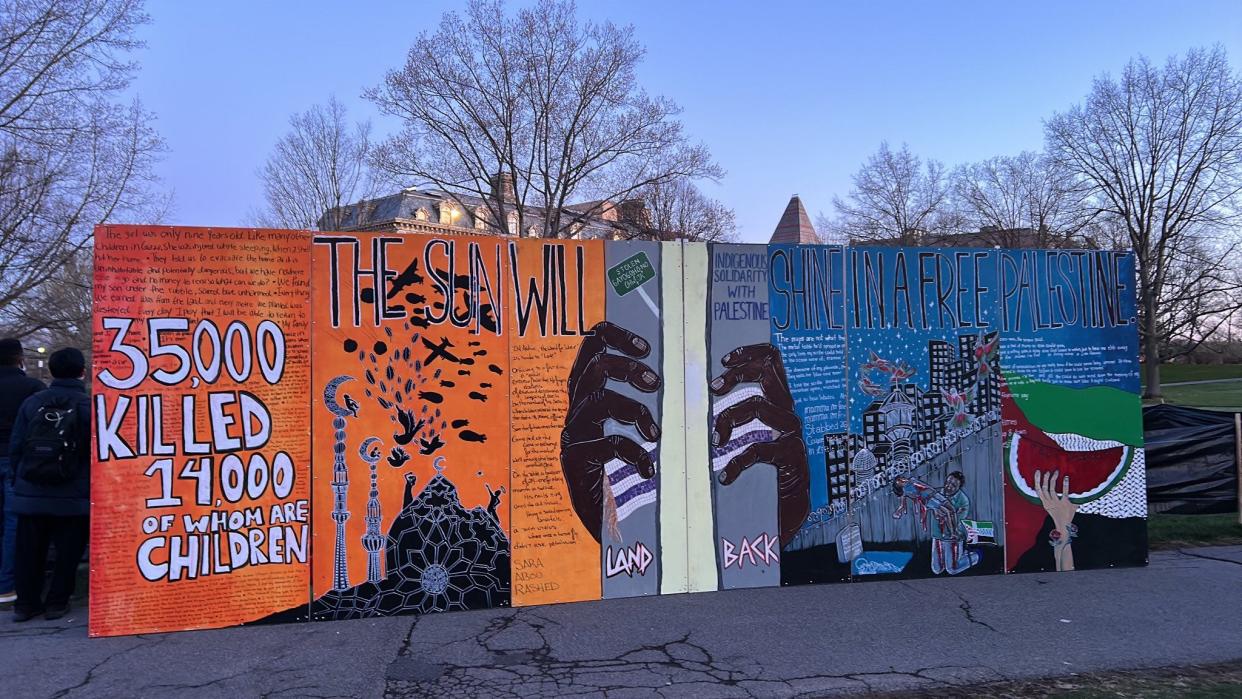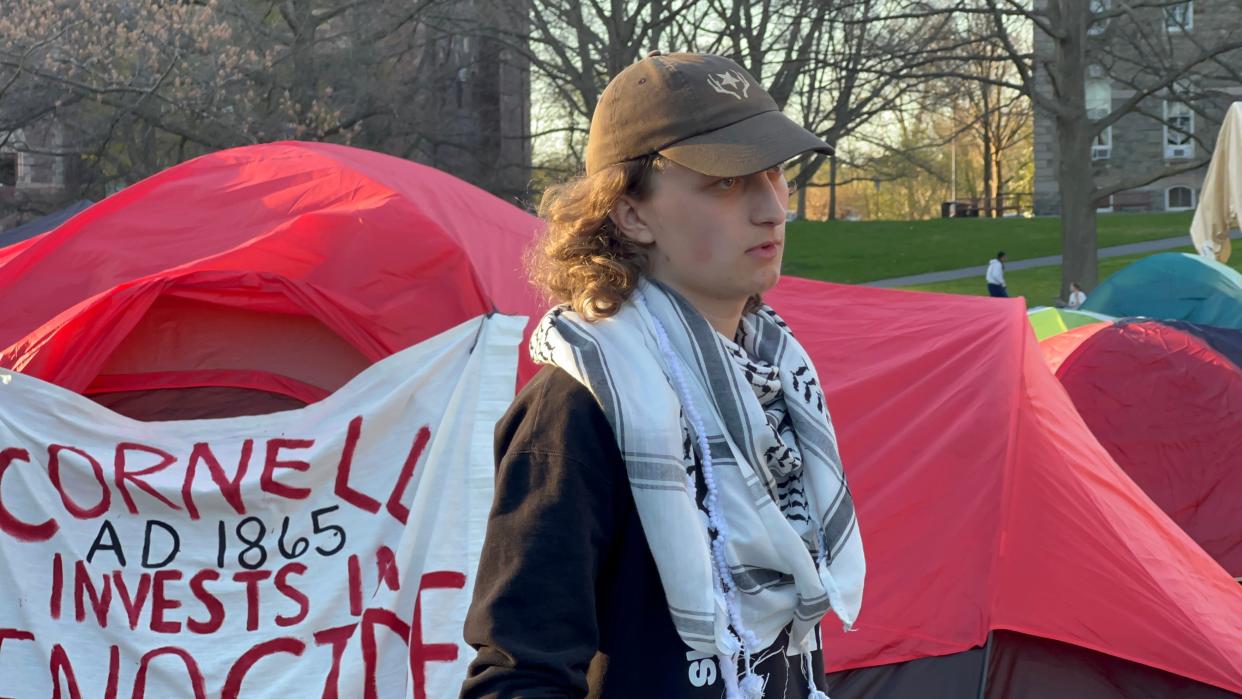Cornell students protest Gaza war over the weekend despite fear of suspension
Cornell’s Ithaca campus has erupted into a protest over the the ongoing Israel-Hamas war in Gaza, mirroring several colleges and universities around the country, despite threats of suspensions and police activity.
The most recent string of protests at Ithaca’s own Ivy League school, Cornell University, began Thursday, as a group of students staged a pre-dawn demonstration on the university’s Arts Quad, including signs supporting Palestine and denouncing the university's connection to research and development of weapons for the Israeli Ministry of Defense, through its partnership with Technion at the controversial Jacobs Technion-Cornell Institute in New York City.
According to a statement from the student-led group, the university's Coalition for Mutual Liberation started setting up tents at 4 a.m. Thursday, but the tents and campers still remain on campus as of Monday morning, despite a statement from the university claiming suspensions and police actions were likely.
The protesting students joined the growing droves staging similar acts of protest nationwide in an ongoing movement to establish liberated zones in solidarity with Gaza, including Columbia University and the University of Rochester.

CU students continue protests in spite of potential suspension
Cornell's protests included nonviolent teach-ins, art builds, and other activities highlighting the urgency of Cornell’s response to the Israeli government’s genocide of Palestinians in Gaza, according to CML.
Joel Malina, Cornell's Vice President for University Relations, released a statement on the tents and protest at about 3 p.m. Thursday, explaining the "individuals in tents were advised that they had been dishonest in their event registration and, additionally, were in violation of university policy regarding tents."
Protesters were then offered an alternative location between the campus's Day Hall and Sage Chapel, but declined.
"They were then told that if the tents were not taken down promptly, they would be subject to disciplinary action," Malina said. "They did not comply, and suspensions, for students, and HR referrals, for faculty and staff, will be issued. This is not an outcome we welcome."
The university suspended four students, including graduate students Bianca Waked and Momodou Taal, alongside sophomore Nick Wilson and a student who declined to share their identity, according to the Cornell Daily Sun, for choosing to remain in the encampment after the university’s 8 p.m. deadline — the originally denoted end time for the “art installation” event that the Coalition for Mutual Liberation applied for with the university.
A statement released by Joel Malina, Cornell’s Vice President for University Relations on Saturday, suggested that the university would prepare to “issue additional suspensions,” noting that some college staff were “deeply distressed by chants made at some of the rallies near the encampment, particularly the phrase, “There is only one solution: Intifada Revolution.”
“The protesting group has repeatedly stated that their protest is political and not anti-Semitic, but these chants belie that claim,” Malina said.

Suspensions reversed
On Sunday, the school’s administration reversed the evictions of the four students targeted with political suspensions and considered opening negotiations over divestment protesters' eight demands, the coalition stated.
These demands include the public acknowledgment and protection of “anti-Zionist speech, viewpoints, and histories in both religious and academic contexts, as well as “total legal and academic amnesty for all individuals involved with the Liberated Zone and related demonstrations.”
“This shift shows the undeniable power of student protests, and that Cornell knows investing in genocide and targeting peaceful protestors engaged in civil disobedience is egregious," the student coalition said in a statement Monday morning.
What’s CML’s issue with the university’s actions?
The Cornell University Board of Trustees adopted a commitment in 2016 to divest from companies engaged in “genocide, apartheid, and systematic cruelty against children.”
The Thursday morning protest organized by CML follows a referendum where undergraduate students voted overwhelmingly in favor of the university divesting from 10 weapons manufacturers, including Boeing, ThyssenKrupp, Elbit Systems, RTX, and Lockheed Martin.
Technion is known for developing advanced drone technology and the D-9R unmanned bulldozer, both playing a documented role in the ongoing conflict in Gaza.
In the weeks building up to the referendum, Cornell has responded to student dissent with “increasingly draconian policies,” the student group claims.
The university’s Interim Expressive Activity Policy banned the use of amplified sound and indoor protests, and restricted the sizes of candles allowed at vigils, reportedly due to safety concerns.
Under the new guidelines, the Cornell University Police Department arrested 24 Cornell students, staff and graduate student workers staging a sit-in during Cornell University's annual Trustees meetings on March 21.
“These escalations against nonviolent students calling for divestment exposes the moral poverty of Cornell's administration,” the group said in a Thursday statement. “Students and their supporters are prepared to remain in the encampment until their demands are met or the university removes them from campus.”
This article originally appeared on Ithaca Journal: Cornell students set up encampment to protest Gaza war
